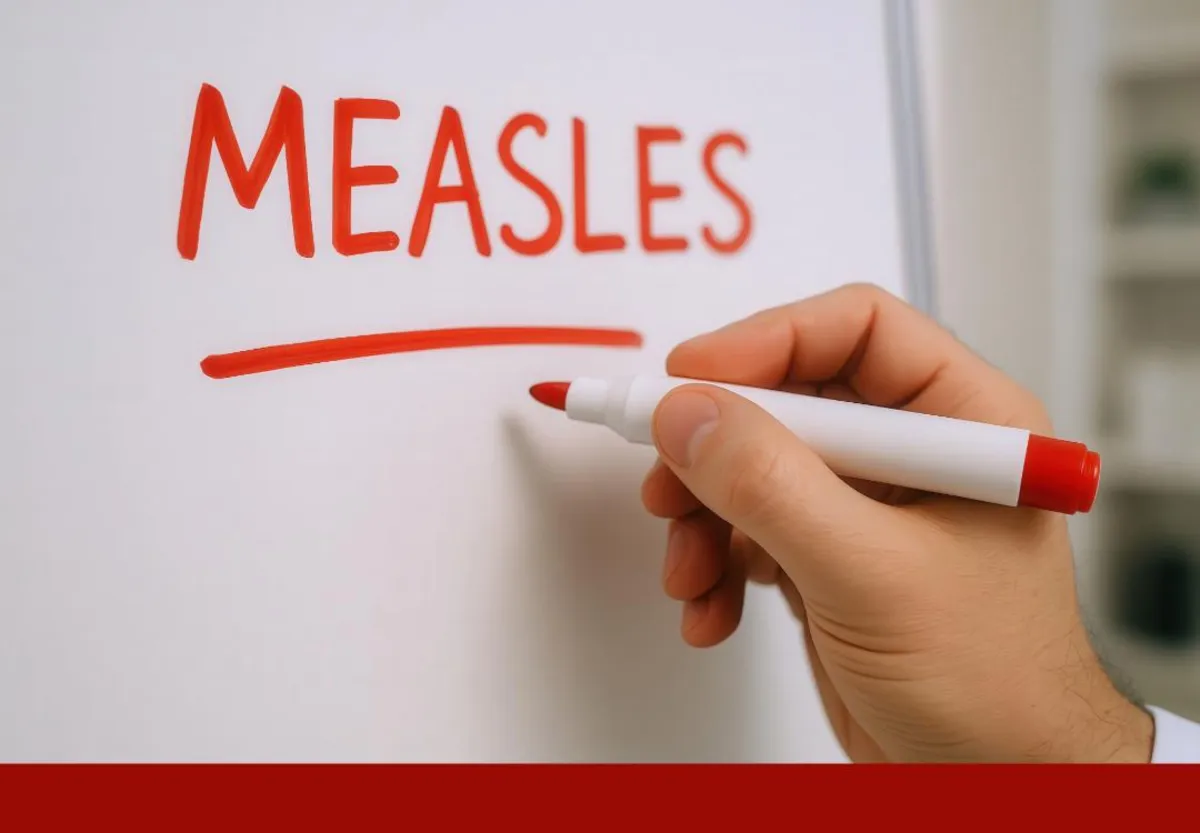
In a concerning public health development, an unvaccinated Georgia State University (GSU) student has been diagnosed with measles, marking the seventh case in Georgia for the year. The student potentially exposed others during a nine-day period from September 2 to 11 while on campus, attending Inter Atlanta FC soccer games and practices, and dining at a restaurant in Ponce City Market.
The amount of time the patient spent in public while infectious necessitates “an absolutely massive contact investigation,” according to Scott Thorpe, executive director of the Southern Alliance for Public Health Leadership. The student visited two buildings at GSU, namely the Aderhold Learning Building and Langdale Hall, as well as the Sweetgreen restaurant on North Avenue and participated in Inter Atlanta FC soccer practices and games.
Notably, the student had not traveled outside the United States, which contrasts with historical trends where most measles cases in the U.S. stemmed from international travel. However, a disturbing rise in cases caused by domestic transmission has been observed over the past year.
According to a press release from the Georgia Department of Public Health (DPH), the agency is collaborating with the Fulton County Board of Health, GSU, Inter Atlanta FC, and Sweetgreen to notify individuals who may have been exposed to the virus. This proactive measure aims to identify those at an increased risk of developing measles.
The DPH has urged healthcare providers to maintain heightened awareness for patients exhibiting symptoms of measles. A spokesperson for GSU confirmed that the university would assist in contact tracing and screenings, emphasizing the importance of cooperation from those affected.
While GSU requires students to be vaccinated, exemptions for religious reasons are permitted. Students wishing to claim an exemption must sign an affidavit. Georgia has recorded six measles cases in 2024, with the latest case raising the total to seven this year.
Previous outbreaks this year included three unvaccinated children from the same Gwinnett County family and another outbreak in May involving three unvaccinated family members following international travel. As of this week, the Centers for Disease Control and Prevention (CDC) reported a total of 1,454 measles cases nationally, with a significant portion linked to a large outbreak in Texas and New Mexico.
Measles is known for its high contagion rate, remaining airborne for up to two hours after an infected person has vacated an area. In groups of unprotected individuals, approximately 90% of those exposed will contract the disease. Vaccination is the most effective means of preventing measles, with children typically receiving two doses of the measles, mumps, and rubella (MMR) vaccine—first between 12 and 15 months and again between 4 and 6 years of age.
The CDC recommends that about 95% of the population be vaccinated to achieve herd immunity and prevent widespread transmission of the virus. Despite having eliminated widespread measles transmission in 2000, experts warn that current trends, including declining vaccination rates, pose a risk to this status.
Dr. Jane Seward, former deputy director of the Division of Viral Diseases at the CDC, notes that importations of measles could pose a significant threat to communities with lower vaccine coverage. Recent data indicates that only 86.8% of Georgia's children were fully updated on their MMR vaccinations last year, prompting fears of increasing cases across Atlanta and Georgia.
Dr. Tony Fiore, an infectious disease expert, emphasized the potential strain on health departments as they work to trace individuals who may have been exposed. Vulnerable groups, including infants too young for vaccination and individuals who do not develop immunity post-vaccination, may be at significant risk.
Symptoms of measles typically include a high fever, cough, runny nose, red watery eyes, and a distinctive red rash. Individuals who suspect they or their child may have contracted measles are advised to contact their healthcare providers before visiting a hospital or clinic to prevent further spread of the virus.
As the situation develops, health authorities and educational institutions continue to prioritize public safety and awareness to mitigate the risks associated with measles outbreaks.